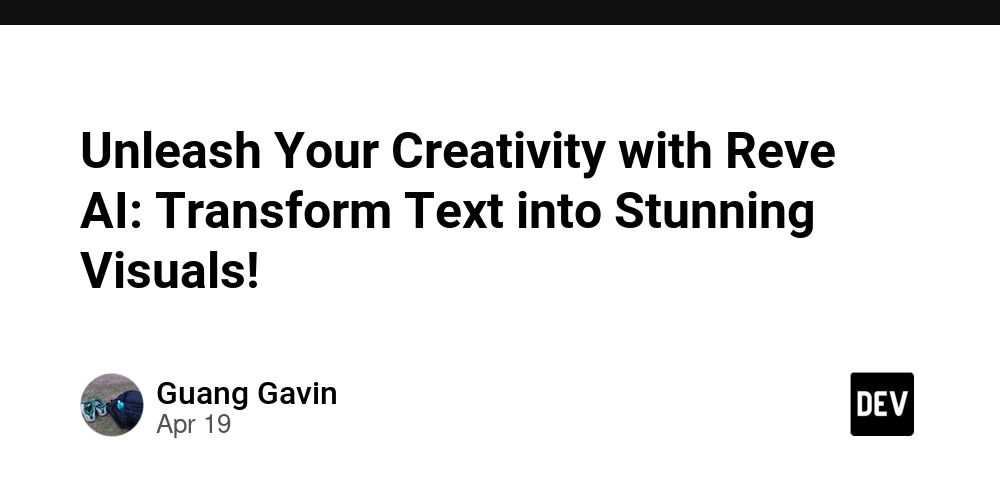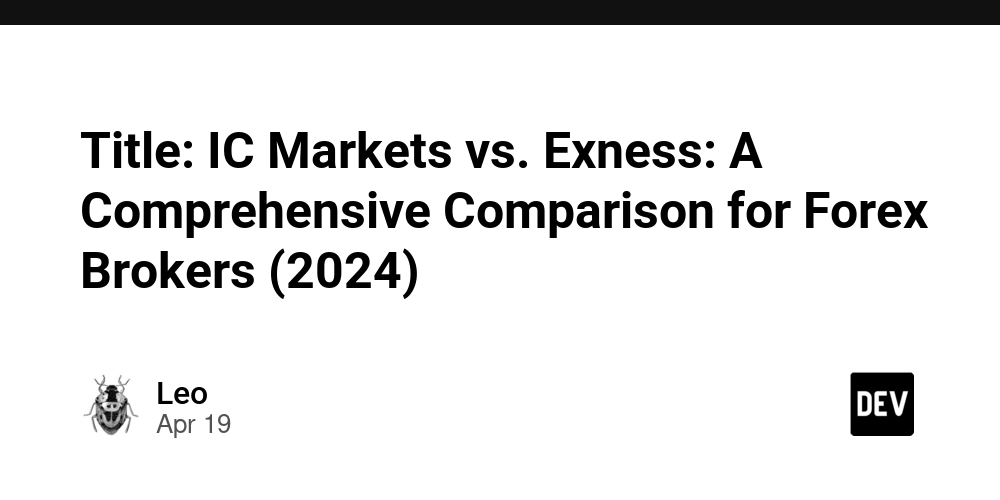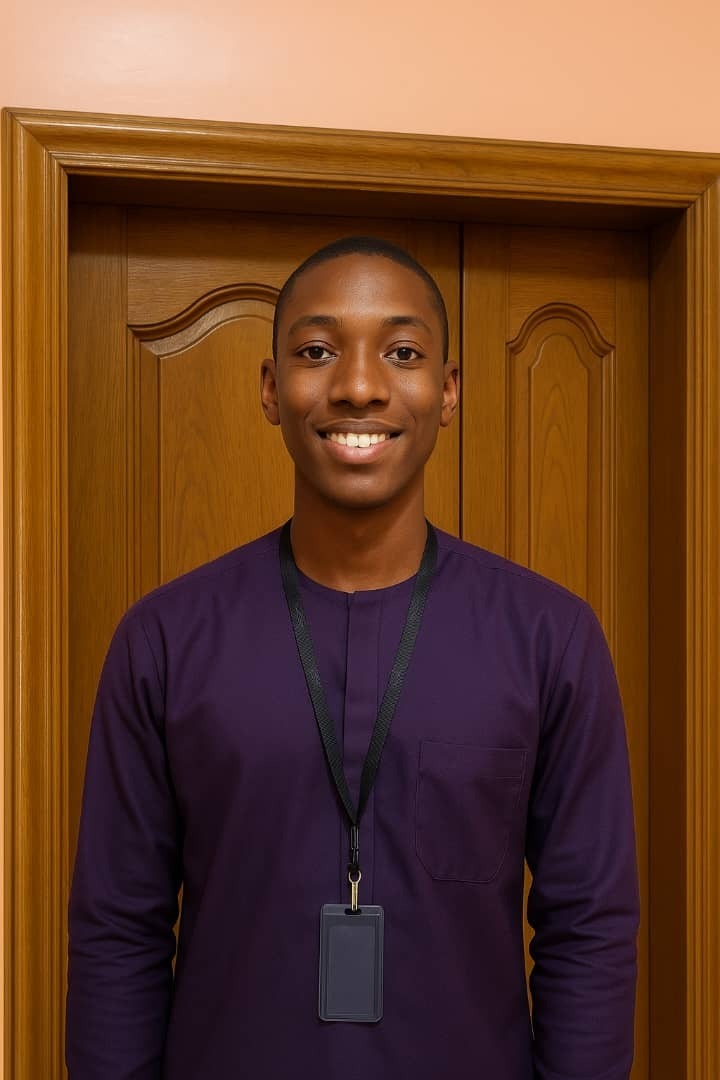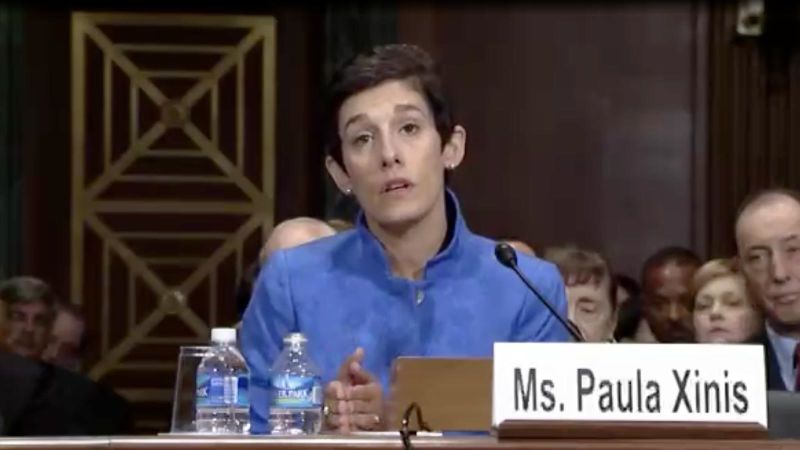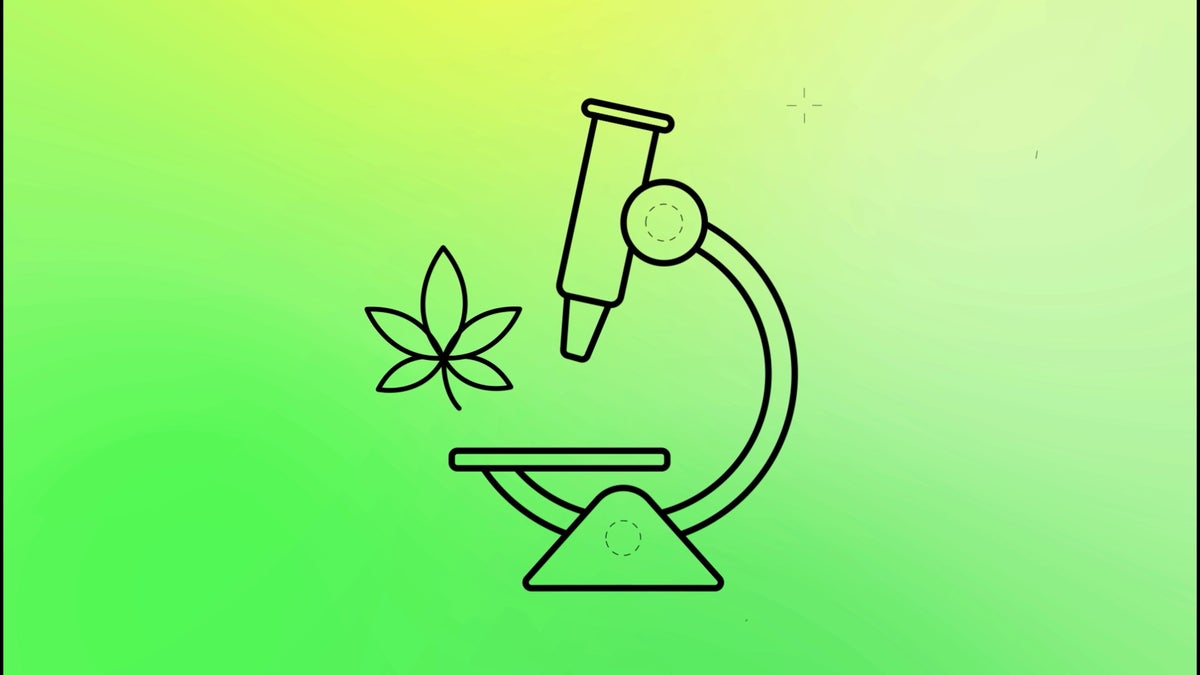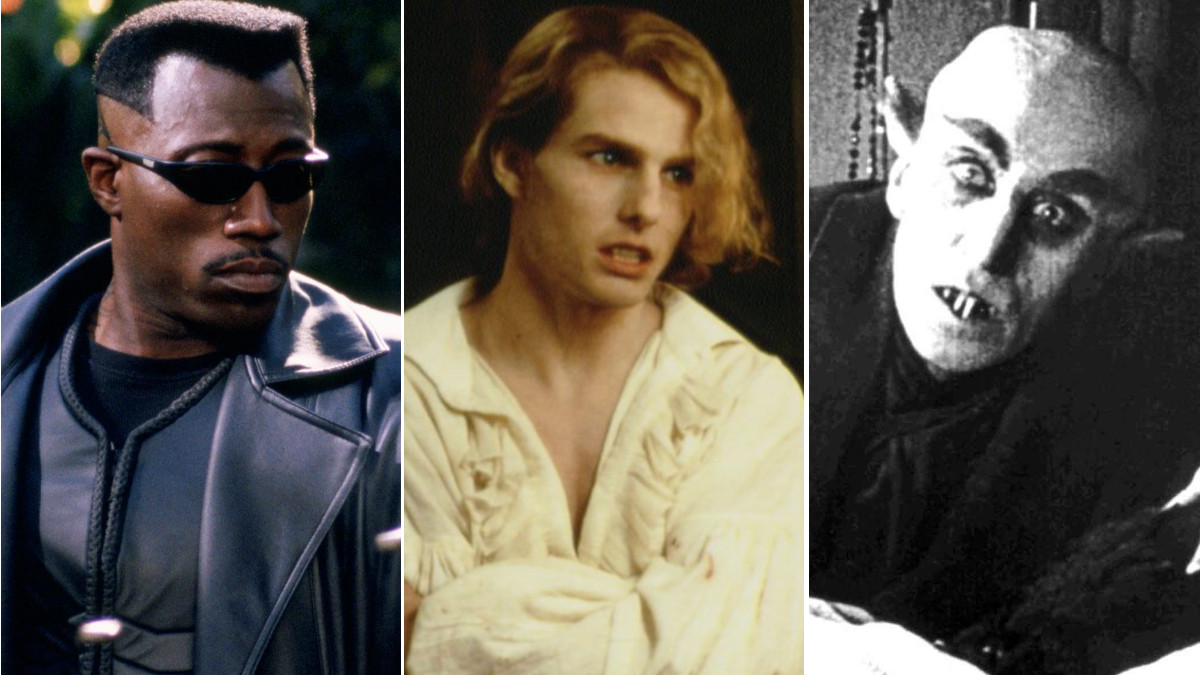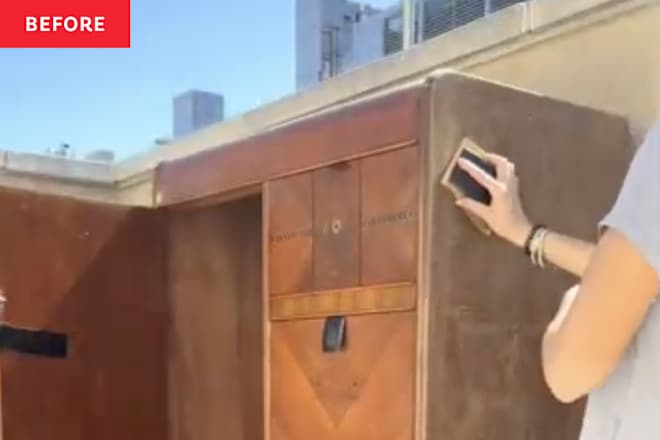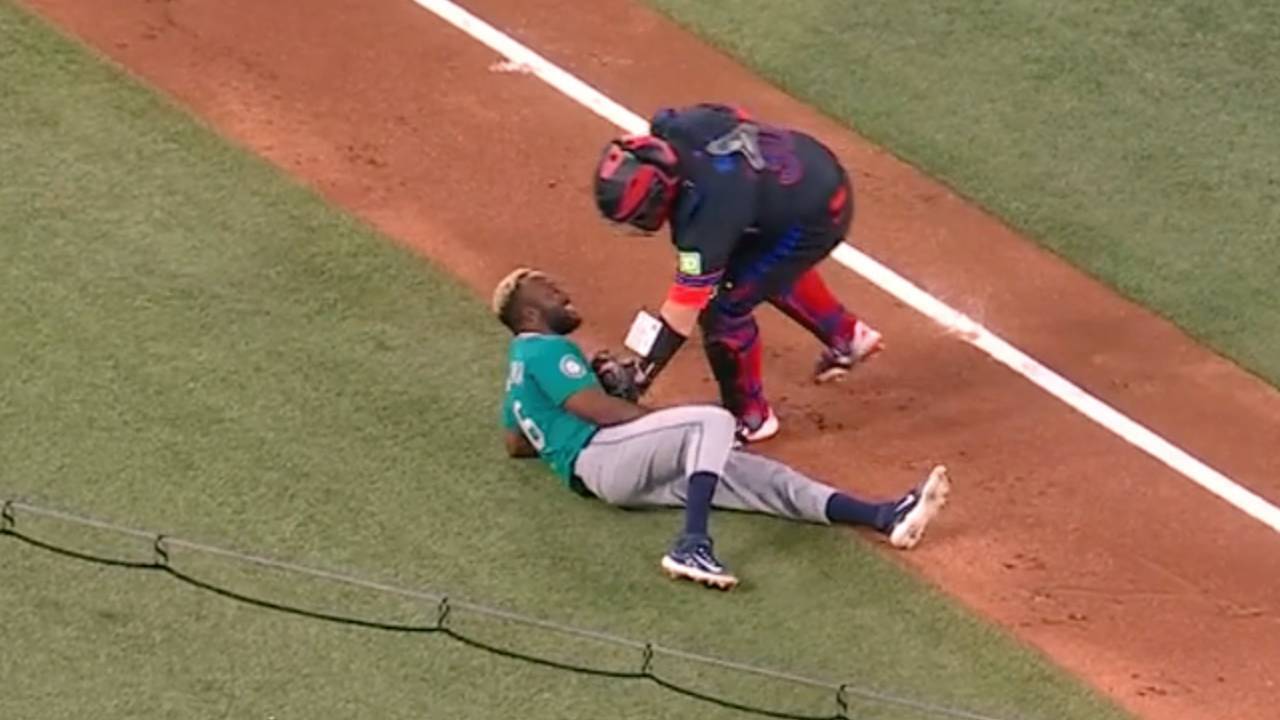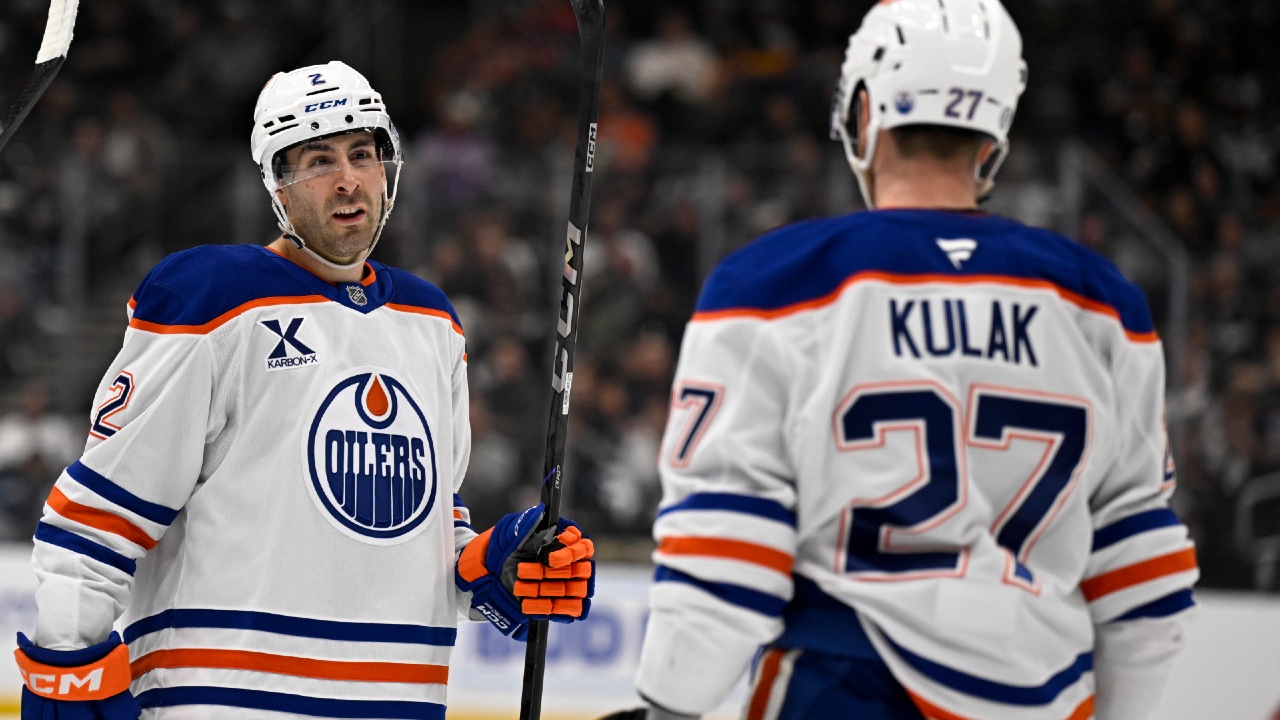The Radiologist Next Door Takes a Year Off
An interview with Dr. Matt Morgan, who took a self-created sabbatical after years of financial preparation, reclaiming his time to travel, reconnecting with family, and living intentionally. The post The Radiologist Next Door Takes a Year Off appeared first on The White Coat Investor - Investing & Personal Finance for Doctors.

The Concept of Intentional Living
Matt and Jim go way back, having met 26 years ago as first-year medical students at the University of Utah. Over the years, they ended up living in the same neighborhood, and their paths have crossed personally and professionally many times. Matt grew up in Salt Lake City, attended BYU for undergrad, and then went to the University of Utah for medical school. With a passion for information systems in medicine, he naturally found his way into radiology and completed his residency in Pittsburgh. After that, he returned to Utah to work in clinical practice and on the entrepreneurial side of medicine, blending industry work with patient care.
Matt also played an early role in inspiring the launch of The White Coat Investor Conference. Matt and Jim had a casual conversation about how people love conferences, which ultimately led to the first-ever event—a ski conference in Park City. Over the years, Matt has stayed involved by speaking at WCICON, submitting guest posts, and being an active supporter, although this is his first appearance on the podcast.
Their conversation today focuses on a major life decision. Matt took a self-created sabbatical from work at age 51. Even though he wasn't in an academic setting where formal sabbaticals are common, he made it happen on his own—taking nearly a full year off from his radiology career, with just a little earned income during that time. It was like a “down payment” on his future retirement, giving him a chance to live out some of his dreams earlier rather than waiting for later years.
Part of Matt’s inspiration came from the book Die With Zero by Bill Perkins. The book challenges readers to think about balancing three key variables: money, health, and time. It emphasizes that some experiences are time-sensitive—you can't just “save them for later” because your health and circumstances might not allow it. Matt reflected on how easy it is to over-allocate all your time and energy to work, while under-investing in family, personal interests, and health.
Drawing from both the book and personal reflection, Matt realized he was too heavily weighted toward work, and he wanted to rebalance his life while he still had the energy and health to fully enjoy it. Matt and Jim touched on the powerful idea that certain chapters of life offer unique opportunities—like reading to a young child or hiking a challenging trail—that simply aren't possible later, no matter how much money you have. Seizing those moments when they're available can lead to a much more fulfilling life.
More information here:
What We Can Learn About Work-Life Balance and Retirement from the French
Planning and Preparing for the Sabbatical
The idea for Matt’s sabbatical didn’t start with a detailed master plan. Instead, it grew from the simple feeling that he wanted more out of life. Despite being deeply committed to his work as a radiologist, he began to feel like every day was blending into the next, almost like living out Groundhog Day. He realized that if he kept on the same track for 15 more years, he might look back and barely remember the details. He wasn’t burned out exactly, but he was craving more meaning, autonomy, and intentional living—a life designed with more freedom and fulfillment.
When it came time to tell his employer about his sabbatical plans, Matt approached it thoughtfully and strategically. He didn’t spring the decision on his employer all at once; instead, he “socialized” the idea over time, introducing the concept gradually so it wouldn’t feel abrupt or threatening. He was helped by the fact that the job market was strong for his skills, and the culture was increasingly supportive of physician wellness. About a year in advance, Matt started hinting about his desire for change. Though the institution tried to entice him to stay by offering leadership opportunities, nothing materialized, and Matt stayed focused on his original plan without getting further entangled.
Importantly, Matt didn’t ask for permission—he made it clear he was going to do this, regardless of whether his bosses approved. He understood the power of being financially independent enough to walk away if needed. Ultimately, the institution worked with him; he resigned his formal academic appointment and transitioned to adjunct status, allowing him to step away but keep a foot in the door. Though there were bureaucratic hoops to jump through, including faculty votes and recommendation letters, the reality was that the institution didn’t want to lose him permanently. The cost of physician turnover is enormous, and bringing back a skilled, known entity like Matt was far easier than recruiting someone new.
Initially, he thought about working abroad, even exploring opportunities in New Zealand. But after thoughtful conversations with his wife and kids (he has six children, some still at home), he realized a major move would be too disruptive for the family. His wife offered the brilliant suggestion of staying put but simply unplugging from work. Instead of chasing change by relocating, he could reclaim his time right where he was. This reframe shifted the goal—it wasn’t about a vacation; it was about living intentionally and choosing how to spend his days without work obligations dictating them.
Preparing for the sabbatical wasn’t something he could have rushed. It was the result of many long-term financial habits like saving consistently, investing wisely, and making pivotal choices like paying off the mortgage years earlier. Matt reached a point where his investments were compounding significantly without needing new contributions, and his financial obligations were low. With their monthly costs reduced and a growing slush fund of savings, he and his wife had the flexibility to make bold choices. This financial freedom made it possible to step away from work for a year. It wasn't because of luck, but it was because of years of intentional living and planning, drop by drop.
Experiences and Reflections from the Sabbatical Year
Matt explained that while it might look like he was “prepared” to take a sabbatical, the real preparation happened slowly over many years. It wasn’t a snap decision. By the time the idea of a sabbatical arose, he and his family were ready. His slush fund could cover their living expenses. He had no mortgage payment, and he recently finished paying off his incredibly low-interest student loans. He emphasized a crucial lesson that if you want freedom later, you have to start planning for it early.
When it came to what the sabbatical year actually looked like, they focused first on extended travel. January and February were spent in New Zealand with his wife and three of their children, embracing slow travel. They took their time, staying in 25-30 different places, and camping often to stay flexible and close to nature. They didn’t rush around snapping photos for social media; they lived in each place, appreciating the different cultures and experiences. Even though their high school-aged son missed a chunk of school, they accepted that a few sacrifices (like skipping an AP test) were well worth the life experience gained.
After returning home in late February, Matt intentionally experimented with how he might want to structure future work-life balance. He tried working about one week per month at his academic institution, exploring what it felt like to have significantly more free time. This “glide path” approach allowed him to imagine a future where work slowly tapered rather than ending abruptly. He embraced spontaneity, saying yes to adventures like river rafting, canyoneering, and having long, meaningful conversations at home—the small but important things he often missed when working full-time.
The second major trip came in the fall. Instead of traveling during the busy summer, they chose to leave in October when crowds were thinner. For about 10 weeks, they traveled across Europe, visiting around eight countries and 30 cities. Again, they favored a slower pace, staying for weeks at a time in locations like Spain to really settle in. After a lot of thought, their senior in high school opted to stay home to continue his music and community activities, while one of their college-aged daughters joined the Europe trip instead.
Reflecting on the experience, Matt realized that travel for him wasn’t about sightseeing but about keeping life vivid, fresh, and memorable. He connected it to the idea of “memory dividends” from Die With Zero. For Matt, travel was a way to create rich, meaningful memories that normal daily routines couldn’t match. He found that the novelty and newness of travel sharpened his appreciation for life itself.
When they debriefed after returning home, Matt’s wife shared that the sabbatical had been life-changing for her as well. Stepping away from the regular pressures of parenting, social comparison, and daily routine brought her unexpected peace and renewal. Together, they realized that taking a year to reset wasn't selfish; it was intentional, healing, and profoundly worthwhile. They both made an effort to document what they had learned, knowing that with time, it’s easy to forget the clarity and perspective gained from stepping outside of ordinary life.
More information here:
It’s a Lifestyle, Not a Vacation
Returning to Work and Long-Term Lessons
When he returned to work after his sabbatical, Matt found it surprisingly smooth. Though there was some adjustment to new computer systems, he quickly adapted. The time away gave him a new appreciation for his job, particularly the parts he once took for granted, like mentoring young medical students and residents. Stepping back into familiar systems and relationships made the transition easier, and he realized that structure and purpose—even with a commute—brought real value to his life.
Reflecting on his sabbatical now that it has been over for three months, Matt described a deepened sense of presence and mindfulness. The break had allowed him to see all of the good things that had always been there in his work and life, things he had previously overlooked. He found new joy in the human aspects of his job—like conversations, mentorship, and patient care—and realized that a balance of work, family, and adventure was more meaningful than simply seeking early retirement. The sabbatical helped him appreciate the richness of both professional and personal relationships more fully.
One of the most powerful takeaways from the year was Matt's sense of peace. He described living the sabbatical year as if it were his last. He was intentional about having experiences and relationships and minimizing regrets. When he returned, he genuinely felt he could “die in peace,” knowing he had lived fully and connected meaningfully with the people he loved. Although he recognizes that the “resentment meter” may creep back up over time, he hopes to carry forward the mentality of not leaving important things undone.
Interestingly, the sabbatical also opened unexpected professional doors. Through a LinkedIn post about his sabbatical, Matt reconnected with a startup founder he had known from residency. What began as casual consulting eventually evolved into a 50/50 career split of half-time radiology and half-time working with the startup, especially at the intersection of radiology and AI. Though the move came with a pay cut, Matt felt it was a once-in-a-lifetime opportunity to blend his passions for medicine and technology—something he might have regretted not pursuing.
Ultimately, Matt's experience offered a powerful blueprint: start early, plan carefully, stay flexible, and live intentionally. He advised others considering a sabbatical to create a clear vision, understand their financial situation, and develop backup plans. Not everyone may be ready to walk away immediately, but with thoughtful preparation, many more could carve out life-changing opportunities. His story wasn’t just about taking a break from work but also about reclaiming control over his time, deepening relationships, expanding experiences, and shaping a career and life that feel fully alive.
To learn more from this episode, read the WCI podcast transcript below.
Milestones to Millionaire
#218 — CRNA Becomes a Retirement Account Millionaire
Today, we are talking with a CRNA who has become a millionaire. She is 18 years out of training and now has more than $1 million in retirement accounts. Her story is a great example that if you just keep saving, keep increasing your income, and give it time, you will become a millionaire. You don't have to do anything fancy. She recommends that you really advocate for yourself to get paid what you deserve. Increasing her income has made a huge impact on how much she could save. She also feels strongly that you should know what you value and spend your money on that and not on the things you don't.
Finance 101: Tax Strategy
When it comes to saving on taxes, the key isn’t just finding clever loopholes—it's about living your financial life in a way that naturally leads to tax benefits. Big-picture moves like getting married, having kids, saving for retirement, or starting a business can significantly reduce your tax burden. Retirement accounts like traditional or Roth IRAs allow you to either defer taxes or avoid them altogether on investment gains. And if you run a business, some personal expenses can legitimately become business deductions, allowing you to spend with pre-tax dollars.
Real estate can also offer tax-saving opportunities, especially through depreciation and classifications like short-term rentals or real estate professional status. These strategies can help offset your regular income with real estate losses. But as you get deeper into tax planning, it’s important to stay grounded. Some strategies may sound too good to be true, and that’s often because they are. If you’re the only one in your circle using a complex or obscure tax tactic, or if you're hearing about people buying items just to donate them at inflated values, it's wise to slow down and be cautious.
At the end of the day, sticking with well-established and time-tested strategies is usually your safest bet. Giving to charity, saving for retirement, and using legitimate deductions will put you on solid footing. If your main motivation for an investment is tax savings instead of financial growth or stability, it’s worth a second look. Risky or questionable tax strategies often rely on not getting audited, which is like playing the “audit lottery.” It's okay to pay your fair share, just make sure you're not stepping into gray zones that could backfire later.
Sponsor: Locumstory
Sponsor
Today’s episode is brought to us by SoFi, the folks who help you get your money right. Paying off student debt quickly and getting your finances back on track isn't easy, but that’s where SoFi can help—it has exclusive, low rates designed to help medical residents refinance student loans. That could end up saving you thousands of dollars, helping you get out of student debt sooner. SoFi also offers the ability to lower your payments to just $100 a month* while you’re still in residency. And if you’re already out of residency, SoFi’s got you covered there, too. For more information, go to sofi.com/whitecoatinvestor. SoFi Student Loans are originated by SoFi Bank, N.A. Member FDIC. Additional terms and conditions apply. NMLS 696891
WCI Podcast Transcript
INTRODUCTION
This is the White Coat Investor podcast where we help those who wear the white coat get a fair shake on Wall Street. We've been helping doctors and other high-income professionals stop doing dumb things with their money since 2011.
Dr. Jim Dahle:
This is White Coat Investor podcast number 415 – The radiologist next door takes a year off.
Today's episode is brought to us by SoFi, the folks who help you get your money right. Paying off student debt quickly and getting your finances back on track isn't easy. That's where SoFi can help. They have exclusive low rates designed to help medical residents refinance student loans. That could end up saving you thousands of dollars, helping you get out of student debt sooner.
SoFi also offers the ability to lower your payments to just $100 a month while you're still in residency. And if you're already out of residency, SoFi's got you covered there too. For more information, go to sofi.com/whitecoatinvestor.
SoFi student loans are originated by SoFi Bank, N.A. Member FDIC. Additional terms and conditions apply. NMLS 696891.
All right. Welcome back to the podcast. We have a fantastic interview today. One I've been looking forward to doing for at least the last year. It's a little longer than most of our episodes, but I think it's worthwhile and we didn't want to split it. So this one might take a couple of trips to work to listen to the whole thing, but I think it'll be worth it to you.
QUOTE OF THE DAY
Before we get to it though, our quote of the day comes from Roger Babson who said, “More people should learn to tell their dollars where to go instead of asking them where they went.” And I love that intentionality. It's going to plug right in to our subject for today.
I want you to also know before we get into the interview that for a typical doctor or other high-income professional, two of the biggest financial catastrophes worth insuring against are disability and death. And that's why we keep a list of vetted insurance agents that will make sure you get the coverage you need without ripping you off. You can see that at whitecoatinvestor.com/insurance.
And you might be surprised. There may be other types of insurance you can save some money on too. Most stocks find they can get a lower price on their home and auto insurance through our partnerships. So, be sure to check those out too. If you haven't shopped that around in years, there's a chance that you're throwing thousands of dollars a year paying too much for your home and auto as well.
INTERVIEW WITH MATT MORGAN
Okay. Let's bring our guest on. He actually is literally the radiologist next door. He's walking over here and we're going to sit down here in the recording studio here at White Coat Investor Headquarters and do this interview.
I've got a very special guest on the White Coat Investor podcast today. This is a doc I've known for 26 years since we were MS1s together at the University of Utah. We were in the same med school class. This is Matt Morgan. Matt, welcome to the podcast.
Dr. Matt Morgan:
Thanks.
Dr. Jim Dahle:
Matt, I have often referred to you as the radiologist next door. And there are five or six docs in our neighborhood. But Matt is the one I've known the longest and the one I live closest to. I actually tried to buy his house once. I was biking around the neighborhood looking for our home and I biked up into the garage because I saw his house for sale on Zillow. And he gets out of the car and I'm like, “Matt, what's up?” Because I hadn't seen him at that point for the four years I was in the military and three years I was in residency. It had been seven, eight years since I'd seen you at that point. And his house was not for sale.
But he did tip me off to the fact that the one next door was going on sale in about a month. And that's where we actually bought and have been next door neighbors for the last 15 years. But Matt, tell us a little bit about your education. Obviously, you graduated from the University of Utah School of Medicine. Tell us about your residency and what you've been doing since then.
Dr. Matt Morgan:
Yeah. Born and raised in Salt Lake City. Went to BYU as an undergrad. Went to the University of Utah for medical school. And then I've always been interested in information systems and medicine. So, it probably wasn't much of a surprise that I landed in radiology. Headed off to Pittsburgh for my residency. Spent five years there and then was recruited back here to the University of Utah and to another sort of partly entrepreneurial role at a startup. I've been sort of doing that kind of thing since. Partly clinical, partly also a hand in industry.
Dr. Jim Dahle:
Yeah. And the fun thing about Matt is that he has been my next door neighbor for the entire time that the White Coat Investor has been going. He had a blog at one point. It was called First Habit. You can kind of see what he's got at mattmorganmd.com now. He was also part of the inspiration behind WCICON. We've been talking about White Coat Investor stuff for 15 years.
I remember a conversation with Matt. He's like, “Oh, you should do a conference. People love conferences.” And we were talking about putting on a conference at Snowbird, just eight miles up the road from us. And our first conference ended up being a ski conference. It wasn't at Snowbird. They weren't actually available. We ended up going to Park City for the first WCICON. So Matt claims to be the inspiration behind WCICON. And he does deserve some of that credit. He's been a WCICON speaker. He has submitted guest posts. But I think this is your first time on the White Coat Investor podcast.
Dr. Matt Morgan:
Yes.
INSPIRATION BEHIND THE SABBATICAL
Dr. Jim Dahle:
So, why is he on the podcast? He's on the podcast because he did something really cool, which I have found totally inspiring. And I've been looking forward to interviewing him on the podcast now for the last 15 to 18 months. But I wanted the experience to be complete before I brought him on. And so, let me tell you what Matt has done. Or maybe I should let you tell us what you've done. Just a very brief version. Give us the 30-second version of your last 15 months of your life.
Dr. Matt Morgan:
Yeah. Basically, the summary is I decided to do a sort of self-appointed sabbatical. People are probably familiar with the idea of a sabbatical in academia. The idea that you have some period of time to do something different. I'm a clinical radiologist. I'm not on the tenure track. There's no formal way to do a sabbatical, but I basically decided to make one. And I thought about it. I put it together. I made it happen.
Dr. Jim Dahle:
Okay. You're what? 51 years old. Is that right?
Dr. Matt Morgan:
Yes.
Dr. Jim Dahle:
51 years old. And you took last year off. Almost completely. It was a little bit of earned income in there, but almost completely off. Almost like a down payment on his retirement. I think that's totally cool. And absolutely something that many of us out there in White Coat Investor land should be considering.
But by way of introduction to this, a couple of years ago, I don't know, two, three, four years ago, maybe, you asked me if I had read Die With Zero. And I said, “No, I haven't.” But I assume from the title that it literally meant dying with zero. And I'm like, “Oh, well, it's probably a bunch of strategies like using a reverse mortgage or using single premium immediate annuities so that when you're gone, your money's gone as well.” And you told me, “Well, that's not really what the book's about.” Why don't we start with you just kind of explaining the themes behind the book Die With Zero and then maybe why it impacted you so much?
Dr. Matt Morgan:
Yeah. Bill Perkins wrote this book, Die With Zero. A lot of people maybe heard of it. It was published in the last several years. It's a little bit of maybe the continuation of the book that maybe a lot more people are familiar with, which is Your Money or Your Life. I like these types of books because they make you think about what it is you're doing and why you're doing it.
Die With Zero, the main themes are that you've got essentially three variables. You've got the financial part, which your listeners are probably tuned into. You've got your health and you've got the amount of time left. Health, time, and resources. And if any of your listeners are a little bit analytical, you realize that there's got to be a way to think through that to try to optimize it. And optimize doesn't mean anything in particular other than fulfillment.
And so, he talks about fulfillment just being sort of the area under the curve. And if you don't pay attention to what you're doing, you just might do it wrong. And what's wrong? Whatever you regret. There isn't a right way to do it. But he talks about how when he was in his 20s, he was working in sort of financial and banking and trying to really go up the ladder. And his friend, also in the same job, says, “I'm going to Europe. I'm taking the summer. I'm leaving.” And he thought he was crazy. Because he's going to have to come back, start at the bottom of the rungs. And so, he didn't go.
And then it's sort of the seeds of how he talks about how that window closed. And that opportunity to be a young person in his 20s in Europe, doing things in a way that you wouldn't do later in your 30s or 40s was passed. And he regretted that. And his friend actually worked out that it didn't cost him much.
Using that sort of as a metaphor, I started thinking about how that applied to me. And lots of analogies. I think you can use a lot of metaphors in this way. You talk a lot about asset allocation. You've got equities and bonds and alternatives. And you have to figure out how much you're going to put in each bucket.
Dr. Jim Dahle:
Your career is an allocation. If your time overall is an allocation, you've got your career, you've got your family time, and you've got your interests. Almost same similar three types of buckets. I started to feel like I had my asset allocation way heavily weighted toward the equity side, so to speak, the job side, which for a lot of people, if that is your mission, and that's where you get most or all of your fulfillment, then that's probably appropriately allocated.
I just started to think that there were other buckets that were missing, that were being sort of not attended to, and that the window of time where I would be able to access those because again, in Die With Zero, he points out if there are things that you need your health for, it doesn't matter how much money you have when you're 87, you're not going to do rim to rim in the Grand Canyon, for example, which is still on my list for this year.
Basically, it was a bit of a wake up call. Something that just kept percolating in my mind of “If I die with, I don't know, several hundred thousand dollars, would I gift that back to myself at 51?” And I said, “Absolutely, I would.” That's kind of how I started thinking about it.
Yeah, I love the concept in the book about chapters of your life or phases of your life, that you can do some things in earlier chapters that you can't do later. If you got a five year old child, they want you to read a book to them every night. They don't want that when they're 15. You've missed that opportunity. If you weren't around to read to them when they were five, you've missed it. It's gone forever.
Likewise, if you want to go climb the Grand Teton, you're probably not doing that at 78. Maybe there's a few people that have waddled up there at 78. But for most people, this is something you do in your 20s and 30s and 40s and 50s. And there's all kinds of activities and experiences you want to have in your life that are available at younger ages and better stages of health that aren't available later, no matter how much money you have.
THE CONCEPT OF INTENTIONAL LIVING
I love that concept. There are three limited resources, maybe there's four, too, as I think about it. There's money, there's time, there's health, there's motivation. And as you get older, you get more money, but you almost always have less health and probably less motivation. And you might not even have the time. We all know somebody that's been diagnosed with cancer in their 40s or 50s and was dead a year or two later. And so, I love the idea of just being super intentional about the way you live your life.
This is one of the things I admire the most about you, Matt. You are the most intentional person I know. You're super intentional about the way you live your life.
Dr. Matt Morgan:
That’s because you don’t look at the mirror very often.
Dr. Jim Dahle:
I want to hear your opinion about why you think intentionality is so important to creating a fun, meaningful, purposeful life.
Dr. Matt Morgan:
Yeah, I don't know. It's something that I just think obviously you have to think about things if you want them to happen. I'm a big fan of mental models. I don't know if you come across that, but mental models are these sort of shortcuts to wisdom. They're things that people have captured. They're truths in some aspects in science. Maybe they're fairly concrete, but then they're financial mental models. It's all around us.
And I've sort of felt like one of the primary ones that I start the day with is that we're all agents, so to speak. We've got to come up with what we want ourselves. It's not going to be the circumstances. We can't wait for the world to adjust. We would like things to be better. I think we should all hope that the world improves. But while we're waiting for that, we've got to run the race that we're in.
Dr. Jim Dahle:
You go to war with the army you have.
Dr. Matt Morgan:
Exactly. If you start with a premise that it's up to you, and then you think about that part of that involves some sort of design. I like design thinking in the sense that you define what you want. You create an idea about what it might be. You iterate around that, and then you test it and try things.
I think there's a stackable mental model that I think is one of the biggest motivators for me and has had the most impact, which is first, you start with the Pareto principle. Pareto discovered this idea that there's this 80-20 rule. 80% of the results come from 20% of the inputs. And then you look around and you try to see how that applies to just all kinds of things.
You could probably think about as you're building a business here, 80% of the results come from, it takes a while to figure out the 20%, but you hone in on those and you double down on the 20%. And another name for those are the vital few.
You figure out what the vital few in your life are. For me, that's family, experiences, and opportunities and fulfillment. If you take the 80-20 rule, you figure out what the vital few are, and then you think about compounding. And you just go after the things that matter most, and you sort of discard the things that are sort of the trivial many. And you realize that that over time really creates a life well lived.
I don't, again, think that it matters what those are exactly for everybody. It's that you ought to have thought about it. For me, I think the biggest thing that I would regret is if I looked back and thought, “I didn't realize you could do that.” It's a failure of creativity. It's a failure of thinking through something. There are a lot of different names for it. People are on autopilot or zombie mode or something, because you just get culturally indoctrinated into a 40- or 50-hour workweek or something like that. And you realize in a fortunate position, if you have the means, you ought to ask yourself, “Why am I doing this?” And if you can answer those questions, then you should keep going. If you can't quite answer those, you ought to think about if there's a different allocation. Intentionality, I think, is just making a plan and trying to make it happen.
PLANNING AND PREPARING FOR THE SABBATICAL
Dr. Jim Dahle:
Yeah. Awesome. A sermon on intentionality that I think we can all take to heart. All right, let's get into the nitty-gritty here. I brought you on here to talk about this sabbatical, this year you took off. But before we get into what you did during that year, let's go back to the beginning.
I know Die With Zero provided a little bit of the inspiration here. But where did the idea to take this self-created sabbatical come from? Tell me about your thought process and maybe even your discussions with your spouse about it.
Dr. Matt Morgan:
Yeah. It would probably be misleading to think that I sort of came up with this plan and that it all seemed set up. The first thing I thought is, I want something more. As a radiologist, maybe you and ER, you get this feeling like it's Groundhog Day. Different people and it's important. And I love how you pat us on the back and tell us to keep our shoulders up, because it's an important work we're doing. At some level, I also felt like I was more than just the next radiology read.
Dr. Jim Dahle:
Every job becomes an assembly line job after a while. You're moving widgets down the line, even if they're really important widgets.
Dr. Matt Morgan:
Yeah. The idea was, I need to sort of mix this up. If I keep doing this for the next, whatever, 15 years till I decide it's time to stop, I will not remember one day from the next for a period of 30 years, interspersed with canyoneering once in a while with my neighbor. Basically, I just wanted things that would make my life feel different in some meaningful ways.
And so, I actually started thinking, maybe I should go work somewhere else. Radiologists are needed. It's a good time to be a radiologist. And in fact, New Zealand wants radiologists to just come spend some time. Could be six months, could be a year. I thought about that, looked into it, got in touch with an agency, looking around at different practices, talked with my wife and started feeding the kids a little bit of like, “What would this feel like? What would you think?”
Dr. Jim Dahle:
Now tell them a little bit about your kid's situation. You've got a few kids out of the house and a few kids still in the house.
Dr. Matt Morgan:
Yeah. Emphasis on… I don't know if you're minimizing the idea of six kids as a few kids.
Dr. Jim Dahle:
Not that unusual around here, but probably unusual where most of the audience is listening.
Dr. Matt Morgan:
Yeah. I think it bears talking or just planting the seed that my wife's never worked and we have six kids and I work in an academic setting. That sort of sets up a few other parts of our conversation perhaps. What it came down to is that based on timing, my son was going to be a senior in high school. You should probably do things that you think parents are best for your kids. And then you're also just thinking how hard will this be on everybody?
It just seemed like a year or six months was going to be too disruptive to pull off. I would have done it in a heartbeat, but my wife would have had to figure out how to just live a life sort of on her own in a different country. I'm sure it would have been interesting for her too, but the decision was is that that probably wasn't going to happen.
And it was actually something she said that made me think about it. She said, “What if we just stay here, but you just unplug?” And I thought, “I had never thought of that. What if I don't have to go anywhere? What if I just exit and then do all of the testing of various ideas that I have while I'm here?” I didn't have to leave. This starts to have implications for “How's your job?” Look at that and so forth. We can get into that as we want to.
But I just thought it's like a staycation, except my goal was not a vacation per se. My goal was to allocate time to me to do things that I wanted to do. It's more of an autonomy question. People talk about burnout. I don't know what that all means. I think we all have different versions in our head. I don't think I was burned out. I just felt like I wanted more fulfillment and I wanted more autonomy. And you've told me before that you're essentially unemployable.
What that means is there is no employer that will agree to the terms that you would require in order to be their employee. I'm coming from being a complete employee in the sense of working at Academic Medical Center. You're essentially, yeah, the cog in the wheel. And I was chafing a bit under having to say no to things.
If people out there just want to think through this. How many times do you have to basically adjust or say no to things that you would do if you could? For example, we live near the mountains. In the winter, the lovely snow falls, and you don't know when it's coming. How many times did I have to say, “See you later, everybody. Have a nice day on the slopes.” Well, I'm working. I don't mind working for them. I don't mind being the provider. But it's doubly painful.
Dr. Jim Dahle:
When they're skiing.
Dr. Matt Morgan:
When they're skiing and I'm working. And I don't want to do that every day. I just want the ability to sometimes say yes or more often. This year became a chance for me to basically say yes to everything. Several things that came up.
Dr. Jim Dahle:
Is there a movie out there with that theme or something like that?
Dr. Matt Morgan:
I think so. But to be able to say yes to any trips that was an option. To say yes to being gone for an extended period of time. So, yeah, a lot of different directions there. But my wife was totally on board because we've been sort of on the same page for a long time. And this wasn't going to make her life any worse. We weren't having to go anywhere. So, basically, it went from “Maybe we need to leave in order to mix things up” to “Why don't I just sort of take an exit and then try to reenter?” And we can talk about that.
Dr. Jim Dahle:
Yes. Perhaps the biggest change is you didn't go to work. You didn't go to work. Something you'd been doing five-ish days a week for the last 15, 20 years. So, let's talk about the preparation for the sabbatical. Both the financial preparation and the non-financial preparation. What did you do to get ready for 2024 when you weren't going to go to work?
Dr. Matt Morgan:
Yeah. I think you can think of it in two ways. Preparation, yes. There's certainly some nuts and bolts in true preparation. Some of it I would consider actually more enabling factors, things that enable the option to actually be on the table. And those aren't things that you can sometimes… You can't do those slowly. Those are drop by drop.
Again, this is clearly going to resonate with some of the themes that you've espoused over the years. But the enablers were that basically I had been contributing to a nest egg to a point that it was now essentially, I don't know if there's a term for it, but the inflection point where it starts to produce more, quite a bit more, than what I was contributing year to year.
At first it's all you. And then somewhere the wind in the sails takes over. And you just start to see that the amount that you're contributing year to year is actually a fraction of what it's doing day to day even in the market.
Dr. Jim Dahle:
Sometimes the phrase used for this is Coast FIRE. When you can reach your goal, if you keep working, but you don't actually have to make any additional contributions to the account.
Dr. Matt Morgan:
That's one milestone. The idea that your nest egg, if you continue to let it go and you have a period of time left, that you think it would produce the amount you need by the time you start to need to draw down. And people have to sort of use some of the calculators and thought process that they can find out there to figure out that number-ish. And so, that's a milestone to say, “I don't need to contribute to this anymore.”
The next one is based on more psychological ideas, and everybody talks about paying off your mortgage or not. And the math says you shouldn't if you've got a 2.75% interest rate like we had. And the freedom says, “Absolutely, go ahead and pay that off.” And that's what I decided to do by 2018, 2019 had paid off our mortgage.
What that did was gave me a sense of freedom. There's no more sense of, “I have to maintain this engagement with this employer in order to fund my life.” By having a mortgage paid off and no longer needing to contribute 20 plus percent to retirement, that just created a way to create a slush fund or a growing fund of cash.
Dr. Jim Dahle:
You reduce the monthly net you need to create. And so, that freed up some of your income to be in the slush fund.
Dr. Matt Morgan:
Right. The first couple of years where those things came into play, we decided to sort of put that toward some updates on our house. We let a cash fund pile up and then we decimated it with a way better kitchen. We're loving that.
Dr. Jim Dahle:
We love your new backyard as well. It's beautiful to look at.
Dr. Matt Morgan:
That was the first thing that we did with our arsenal of funds. But it felt good to just do that with cash. And again, not foreseeing what we were going to do, the slush fund again began to accumulate. I wasn't necessarily intent on getting that invested down to the penny. I was allowing that to sort of ride up into cash, knowing that if we wanted to do something, I would just need it on hand.
That coincided with some of our thinking around the sabbatical. And so, again, we had an arsenal of resources. And I've, of course, been watching my finances year to year. I know what it costs, what our monthly needs are.
Dr. Jim Dahle:
You were good with money before. And for the last 15 years, you've lived next door to the White Coat Investor.
Dr. Matt Morgan:
Exactly.
THE SABBATICAL YEAR: EXPERIENCES AND REFLECTIONS
Dr. Jim Dahle:
You're good with money, is my point.
Dr. Matt Morgan:
Yeah, a lot of over-the-fence conversations and all of that. Yeah, we were then sort of ready to do something like this financially. If you could call that preparation, yes. But it was slow. It wasn't anything I could have done immediately if I had not kind of been putting the pieces in place to do it. That's one piece of advice is if you want freedom later, you have to dial in early. And then those options just become available.
Dr. Jim Dahle:
Your slush fund was enough to cover your family's living expenses. Now you don't have to pay a mortgage. You don't have to save for retirement. I know your student loans were refinanced when we came out of medical school, like 0.9%. I don't even know if you have five figures left of those now, do you?
Dr. Matt Morgan:
No. I felt like almost a badge of honor that I was paying off loans at 0.9%. And so I let that ride for the entire time. And actually, I paid my last little payment like six months ago.
Dr. Jim Dahle:
Yeah, very cool. But basically, you had enough slush fund to pay for everything else. You could cover it. You knew you didn't need income the whole year to fund your lifestyle, even with all the cool stuff you were about to do.
Dr. Matt Morgan:
Right, it was not just funding. There are a few things that are going to be food and so forth, they're going to be wherever you are.
Dr. Jim Dahle:
You got to pay your property taxes, you got to pay your utilities.
Dr. Matt Morgan:
But yeah, we were going to be spending more and we were not in the workforce as much. Although, again, my goal was not to not work at all. If we switch gears into the preparation of the job itself, basically, what happened is I became an adjunct. They rehired me back as a contractor. But in this case, I was able to just work. They would say “When can you work?” Isn't that an interesting and beautiful concept, where the tables turn and I just say when I can?
Dr. Jim Dahle:
We're going to dial in on this, because this is a key piece of this. We're going to spend some time on how you came back to the same job after a year. But before we get there, let's talk about the year. And let's just go chronological order. This was January to December. What do you do for a year when you never went to work?
Dr. Matt Morgan:
Well, the first thing was the extended chunks of travel. We mostly planned around those two things. My wife and I both have loved just seeing other places, living in other places, cultures, people. It's not really about just being able to lay eyes on the Mona Lisa or run around museums or something. It's really about seeing, opening your eyes, broadening your horizons.
Dr. Jim Dahle:
Yeah, everybody says they want to retire so they can travel.
Dr. Matt Morgan:
Yeah.
Dr. Jim Dahle:
And you had a down payment on retirement, a year of retirement, for lack of a better term. So you travel. No surprise.
Dr. Matt Morgan:
No surprise, perhaps, that we were honed in on New Zealand based on things that we just barely discussed about possible jobs there. I've never heard anybody say they didn't enjoy their trip to New Zealand. That was our first checkmark, was let's go to New Zealand. And so, we like the idea of slow travel in the sense of, everybody may have a different concept of what that is, but it's not running frenetically from place to place, snapping photos and making sure Instagram knows that we were there.
We just like the idea of a fairly slow pace and being able to settle in and enjoy things. We took six weeks and went to New Zealand in January and most of February. And I drove 3,000 miles. We did both islands from north to south, 25 or 30 different places we stayed. We took one suitcase full of just camping gear, two tents and sleeping bags and pillows and so forth so that we could be wherever we needed to be and just open up the back and eat our ramen for dinner and just stay near wherever we were. That gave us a lot of flexibility as well. We just had a great time seeing all the places.
Dr. Jim Dahle:
You're on vacation. You're on vacation in New Zealand for six weeks.
Dr. Matt Morgan:
Yeah, definitely not doing anything besides just enjoying our time there.
Dr. Jim Dahle:
Now you keep using the pronoun “we.” Who's we?
Dr. Matt Morgan:
Myself, my wife, and three of our kids.
Dr. Jim Dahle:
Three kids, including the senior in high school?
Dr. Matt Morgan:
Yes. Who was gone for January and February. This was part of his junior year, but yes.
Dr. Jim Dahle:
Okay, this is junior year. This is the big AP year. Everybody's taking these hard AP classes and it's the year to real dial down. Six weeks. What did they do for school?
Dr. Matt Morgan:
Thankfully there was a little bit of tailwind, although it's mostly gone, it seems like, in schools today from COVID and the idea that you could maybe do things in different ways than people had thought of before. In this case they checked in remotely. Their teachers gave assignments. This was much easier in elementary school and middle school. High school was a little bit more challenging. Our oldest actually had to in some cases decide not to take a certain… I think it was maybe the AP history that he didn't end up taking.
These are all trade-offs. There's no way to do something and thread the needle perfectly. Some people would say “Is that worth it?” And we thought it was like. I think of my AP credit and as a physician, you probably know this too. It didn't work. It didn't work for anything. I had to repeat all of the AP credit because med school didn't recognize it.
Anyway, there's the idea that you have to be some sort of high school superstar. And I think looking back, a trip probably was way more meaningful than some of the sacrifices. Utah has a fairly, at least the schools that we were working with, worked with us. The counselors thought it was an interesting and amazing opportunity. We didn't get any friction.
Dr. Jim Dahle:
Yeah. Okay. We've made it to halfway through February. You've already done the cool, awesome six-week trip to New Zealand. Now you're home. What now? What do you do next?
Dr. Matt Morgan:
I just started thinking about what would it feel like? I started to do my own sort of life experiments. Again, a lot of specialties have options for locums and stuff like this. I started to look into whether I would get licensed somewhere and what it might feel like to go and work for a week somewhere and then come back.
And then I started just working with my own institution, just getting my availability. The idea being about a week a month that I would test out what that felt like, both financially to essentially see how that covered and what that might feel like if we, at some point, were living on a week of work per month.
Also just what it felt like to have more time to do other things. Just experimenting with what my glide path might look like maybe in 10 years when I actually pull that trigger to basically scale back work. I think work should be anything you consider meaningful. A lot of people say retirement and it's like some sort of major milestone and you just stop doing anything that you've ever done before. I consider the glide path to be a lot more of a slope to that. I imagine that at some point I'll go to half time and then I'll go to a week a month, for example, and that could go for a long time. I was experimenting with what that felt like.
And then I was just saying yes to anything that came up, being spontaneous, which is not my usual opportunity or probably my temperament in some ways. If a neighbor happened to say, “Do you want to head down to the canyons and rappel and risk your life here and there?”, I would say absolutely. And we did river rafting. Just things that are spur of the moment that happened during a particular week. There's no other option. If the schedule at work didn't allow for it, those would be times where I'd have to say sorry.
I just enjoyed reading, doing things that are just personal fulfillment. You only have so many years and you look at the number of things that you'd like to read or things that you didn't learn in high school. I read some of the books with my kids that were in classes. I even started writing down things that I essentially to make explicit things that I did that I otherwise wouldn't have done if I'd been at work. And I just started to get this long list of conversations in the kitchen, talking to people that just came over for a short bit. And it just highlighted for me the amount of opportunities that I was enjoying just by reallocating my time.
Dr. Jim Dahle:
You had been missing out the year before because you were at work.
Dr. Matt Morgan:
But I think that will probably come off as sounding like, “Well, of course, everybody would like to do that full-time all the time.” I think of it more as a weekend. All of your medical listeners will know what it feels like to work 14 days straight. What if you had to do that 28 days straight? You'd start to have both some burnout, whatever you want to call that, and you would feel some resentment building.
Because what is it that you need to do Saturdays and Sundays or want to do? You would be missing all of your Saturdays and you start to say, “I don't want to do that anymore. That isn't fair. I don't want to miss the enjoyment that you get on a weekend.” And by not taking some time, I consider the sabbatical basically a weekend in my career. I've been in the workforce for about 15 years, year off, maybe 10 or 15 years again, maybe some more sabbaticals as the years go.
But I thought of it as, you could call it an expensive birthday present for turning 50. You could call it a weekend in your career. You could call it a down payment on your retirement. But there are a lot of different ways to think about it. But it essentially just coalesced into… Maybe people think that's selfish. I see it as being if you can do something and you decide not to, that's fine. If you can do something and you never even thought about doing it, that's on you. I just think everybody should be deliberate about how they think of it.
Dr. Jim Dahle:
Yeah. There was a little bit of work during the year. Did you ever go do locums somewhere else? How much work did you do for your institution? Was it all teleradiology or what did work look like during those months?
Dr. Matt Morgan:
Yeah, I actually went in for most of it locally. The work that I do has biopsies involved and things that are in person. So, it doesn't work quite as well for teleradiology as some situations do. I actually tried to get something up in Washington and credentialing might be a dirty word for most of us. Before I started talking to a group there. And eventually in April, they said they could get me credentialed by September. And I said, sorry.
Dr. Jim Dahle:
That doesn't fit into this plan.
Dr. Matt Morgan:
Well, yeah, that was at the end, that wouldn't make any sense. I'm sure there are other places that there were reasons for why that maybe was taking too long. I never got to really try out the locums as traveling locums. But I guess for most people, they would choose to do local locums if they could anyway. And maybe that's something we will do if the kids are gone and we want to just go check out different places.
Dr. Jim Dahle:
How many days do you think, just an estimate, do you think you actually went into work during that year?
Dr. Matt Morgan:
Probably March through August, well, March through September, I did probably about a week a month.
Dr. Jim Dahle:
Week a month, okay. So what does that work out to be? Eight weeks or something like that? Seven, six weeks?
Dr. Matt Morgan:
Probably a little bit less because it probably didn't all work out that way.
Dr. Jim Dahle:
Okay. And then you took some shorter trips. We did some canyoneering, we did some rafting, you did some other trips. I wasn't on, I know that. But there was another huge trip at the end of the year. Tell us about that trip, who went on it, and what you did on that trip.
Dr. Matt Morgan:
At the end of the year, people might wonder why we didn't do that in the middle of the year. School, it would have been a lot easier with school to go during the summer. But a couple of things were that crowds are way more in the summer months to go anywhere. And so, we didn't want to fight the crowds. And the kids had things that they really wanted to do, camps and just community events and things.
Dr. Jim Dahle:
It wasn’t school, it was the other stuff.
Dr. Matt Morgan:
It was the other stuff. They didn't want to miss out on those summer things. Plus, the summer is great here. There's no reason to try to leave Utah in the summer. There's plenty to keep us interested and busy.
Dr. Jim Dahle:
Meanwhile, everyone else out there is listening to this going, what are you talking about? I go to Utah in the winter.
Dr. Matt Morgan:
Yeah. Well, there's a summer playland as well. We decided to, again, do a little bit of a more complex thing and actually leave for the second quarter of the school terms. So basically October through end of December.
Dr. Jim Dahle:
10, 12 weeks or so.
Dr. Matt Morgan:
Yeah, it ended up being about 10 weeks. We essentially went to Europe. I knew that that was something on. This is all my bucket list-ish. Not necessarily the bucket list, like I have a list, but I had not done Europe. I had not been to a few places that I wanted to go to. We set up basically an open-ended excursion starting in Spain and ending up in Vienna and ended up being around eight or so countries and about 30 cities.
That sounds pretty frenetic. Some of it was sort of a bit of traveling here to there, but we spent a full month in Spain and three weeks in one location. Again, the idea being to just settle in and get a sense of what it feels like to be there.
Dr. Jim Dahle:
Now, your senior didn't go on this trip.
Dr. Matt Morgan:
Yeah, that was interesting. We actually swapped to one of our kids. One of them that was in college knew she was coming up on a break where she was going to take some extended time off to do a mission. She opted in to the trip and our senior looked at things. We talked through it. It was his decision and he decided to stay here. My wife's parents live nearby and my oldest son and his wife and their young new baby were living in the basement anyway. There was almost like another mini family where he could go stay for that period of time.
We talked a couple of times a week, stayed in touch with him, encouraged him. That was hard for him and I'm still not sure if he knows which decision was correct, but he's heavily involved in music, loves a lot of things that he was doing and that would have compromised a bunch of things that he was doing.
Dr. Jim Dahle:
Six weeks in New Zealand, 10 weeks in Europe. You spent four of the 12 months off the continent.
Dr. Matt Morgan:
Yeah.
Dr. Jim Dahle:
It's pretty incredible. If most physicians out there think about, imagine taking four months and being off the continent in one year. It's just not doable for most people unless they do something like what you've done.
Let's talk for a minute about travel though. This is something I've discovered. We're about seven years into financial independence and like a lot of people, we thought we wanted to travel a whole bunch. Well, one of us was right. Katie loves to travel. She could spend four months on other continents every year and be perfectly happy about that. In fact, probably would love it. I don't want to spend that much time traveling. What did you learn about yourself and travel and how much of it you eventually want to do when you are fully retired?
Dr. Matt Morgan:
I think I'm probably more like your wife. I just like to be in novel locations. It again, doesn't have to be sightseeing per se. I just like living in a place where the day seems fresh and different and new and the vista is something I've never seen before. I don't know where that comes from. I certainly enjoy where we live and it's beautiful. It just like anything, for me anyway, it becomes rote. It becomes something that I just don't notice or don't appreciate.
Again, maybe this is a fundamental thing for me, but if I can't differentiate one day from the next, I don't know that I feel like I'm going to remember what my life was. Travel, for me, sets up an opportunity to share. There's another thing from Die With Zero. You get memory dividends, which dividends, everybody…
Dr. Jim Dahle:
We're all into dividends around here at White Coat Investor.
Dr. Matt Morgan:
If you have memory dividends, that's where you get to enjoy it again later. For me, that's like, “Do you remember when we were in Spain? Do you remember that hike we did in New Zealand? Remember that 20-miler that we wondered how it was going to work out and the weather was awesome?” Those are just highlight experiences. For me, travel just uncovers those in a way that the day-to-day at home doesn't.
Dr. Jim Dahle:
If we brought your spouse in here and sat her down and asked what she thought about all this, what would she say about this year?
Dr. Matt Morgan:
We came home. We tried to glean what we could out of what just happened.
Dr. Jim Dahle:
Debrief a little bit.
Dr. Matt Morgan:
Debrief a little bit. We went out to eat. She actually looked at me and said, that changed my life. Possibly, especially the extended time away. She's a stay-at-home mom, six kids. The pressures of that, the challenges of whatever everyone feels in the community, keeping up with other people, comparisons, all the things that people deal with.
To have that time away, she says, just settled a whole bunch of the issues that you have in mid-life. Whether that's sometimes physical, hormonal, whatever, as well as just a sense of peace and being with her people, which is our family. She came back just as refreshed as I did.
We both tried to write things down and see if we could hold on to things as long as we can, because there's that knowledge that eventually it slips through your fingers and you forget your perspective. It's like being on top of a mountain, seeing the valley, and then you're back down in the thick of it. You have to try to remember.
RETURNING TO WORK AND LONG-TERM LESSONS
Dr. Jim Dahle:
It feels like an experience you should journal as you go along. Let's change gears. There's a whole bunch of people listening to this going, “That sounds awesome. I want to do that.” Then they start thinking about their job. They start thinking about work. I want you to go into some detail here about this interaction with your job when you went in there. At some point, you had to tell your boss, “I'm leaving for a year. Whether you fire me or not, it's up to you, but I'm going to do this thing.”
Tell us about that and how they accommodated you and what power you might have felt when you realized that you were the rare thing in this relationship and what things are like now going back to that job.
Dr. Matt Morgan:
I think it probably bears mentioning that the different job markets have different opportunities. I feel fortunate to have experienced several timing issues, both when we graduated from med school with low interest rates to have bought a home in 2009 when there was basically a market correction. Then in this instance, it happened to be a market where I had more power in the decision.
I started to hint at this idea that I might try New Zealand or something. You have to socialize your ideas so that they don't come so abruptly if you would like to maintain relationships and maintain opportunities. Burning bridges is the opposite. Where you surprise somebody or it seems like you were thoughtless about maybe how you handled it.
First, you just want to be thoughtful. You want to start making that idea a possibility by saying, this is how I'm feeling, this is how I'm thinking. Thankfully, I think there's probably a receptive culture to the idea that you need wellness in your life and whether you're feeling that you need something else. That might not have been true 15 years ago where people would just roll their eyes or think, “My way or the highway, see ya.”
Both the market needing my skills at this time and a system that I think couldn't really argue with the idea that if you felt the need to make a change, then that's probably justified to maintain your wellness.
It was about a year in advance that I started talking about it. They actually tried to make adjustments. That starts to make people perk up a little bit. There were some things where somebody asked me if I might want to be involved in this other leadership position or something. I think mostly dangling a carrot to try to get me engaged in something that I couldn't walk away from.
I think fortunately, actually, whether that was in good faith or not, I don't know. But it never materialized. I maintained a free and clear. Other than showing up and doing my job each day, I didn't have any additional entanglements, as you might say.
Dr. Jim Dahle:
It's a little harder when you're in charge of the department, isn't it?
Dr. Matt Morgan:
Yeah. Basically, I then started to say, “I'm going to do this.” To your point, I think you have to have the pardon the term, but the FU money idea is that you're not asking permission. You're telling them. Because the minute you phrase it as, “Can I do this?” The answer is no. “No, that won't work for us.”
I had to be ready to say, “I've done 15 years in academic medicine. I've taught residents. I've done this. I've published things. I've experienced this whole gamut of this type of career. What if my second half of my career is totally different?” I had to try that on and think about what would it be like to be locums? What would it be like to do teleradiology from my basement?
Just leave those as options, because if you're a negotiator, you realize what's your next best alternative. If you like it, then you're in a really strong position because they have to match what you want or watch you walk away.
Essentially, they said, okay, if you want to do this, we have a way that this could work out. That was what I alluded to earlier. It sounds dramatic, but I had to resign my associate professor. I became an adjunct. Faculty had to vote. I had to get letters to reapply because academia has its hoops and so forth. It all sounded very and felt dramatic like I was doing something like burning a bridge or something. It actually set myself up to have this freedom to do this.
Then on the return trip in, I had to get letters and get voted on by my department again. But again, I think the enabler is that the market is just beggars can't be choosers. In our situation right now, faculty recruitment is pretty tough. I was holding all the cards.
Dr. Jim Dahle:
Yeah. In the end, those are all formalities. Of course, they're going to vote you in. They want you back.
Dr. Matt Morgan:
Yeah.
Dr. Jim Dahle:
While we might not do that in my private group out of the community hospital, essentially, it works the same way. You've got a known entity you're bringing back into the group, that's way better than trying to hire somebody new. The recruitment costs of finding a physician these days might be $50,000.
Dr. Matt Morgan:
Yeah. In an academic setting, I know that people might even inflate things to make their point, but I think Stanford did a study, too. For a person that's left and basically pulling someone else, they thought it was somewhere close to a million dollars in all the ways that that costs the system.
Dr. Jim Dahle:
Lost earnings.
Dr. Matt Morgan:
Yeah. The ramp up period, the finding a fit, the chance that there's maybe 30% chance that somebody actually doesn't stay. There's a lot of turnover costs. I just stepped back in as though I'd never left. I knew all of the systems. I think they saw that as a win.
Dr. Jim Dahle:
Yeah. I'm sure whatever six weeks of work you did during the year helped you stay up to speed. But did you feel like you lost a step when you went back or you just slipped right back in seamlessly?
Dr. Matt Morgan:
Well, several of your listeners may appreciate that we switched computer information systems while I was gone. I felt a little bit off balance because of the tools that I was using, but that didn't take too long to figure out.
Dr. Jim Dahle:
Yeah. You've done that before. Okay. I deliberately put this interview off. We're doing this at the end of March. I think it runs in another month or something. I deliberately put this off. You live next door to me. We could have done this interview three months ago, but as I told you, I deliberately put this off because I wanted to ask this question during this interview. And that is, how has your perspective on this year changed in the last three months that you've been back to work?
Dr. Matt Morgan:
The first thing I just noticed, because I think this year helped me learn what it meant to be more present. There's a lot of discussion out there about mindfulness or what it even means. I think we all struggle to know if we're being fully present in what we're doing. There's nothing like going away and coming back to help you taste it again.
The first things I've noticed being back is just that I realized that I was discounting some of the good that is there. When your allocation is overdone and when you feel like Groundhog Day, you don't realize that there's maybe an iceberg underneath that is quite solid that you're just taking for granted.
And so, having a year off also helped me understand that I do enjoy conversations with young, bright people in training that want everything I can give them in terms of helping them prepare for their careers. There's nothing quite like that, where you feel that amount of responsibility and an opportunity to influence and to share what your experience has been.
Dr. Jim Dahle:
You think maybe you were taking that a little for granted before.
Dr. Matt Morgan:
Yeah. You just see another new med student comes through, another resident comes through, and you see it kind of as rote and routine. And it helped me kind of re-energize and re-appreciate that if I'm home and I'm reading a book or doing whatever, I'm not having that enriching opportunity. It helped me realize that people are maybe more important than I thought they were in my day-to-day.
Same is true for just full-time working at home or something. I realized that I like the mix of having, sure, there's a commute. I have to leave the house, get there by a certain time. Some people want to just abandon that whole idea of having to be anywhere at any time, but some structure is useful, helps maintain a sense of purpose. And so, it helped me sort of bring back that sense of why am I doing this? Again, the purpose that I think we all put on our personal statements that was either completely sincere or mostly sincere.
And then I do work with patients. I do see people and I reconnected with that part. And so, it really just helped me realize that I don't want to give up all of that allocation. I tried certain balances. You've written something that's sort of like 150 Allocations That Are Better Than Yours. In a financial sense, there are probably 150 time allocations that are better than what I've described. But the idea is if you have something reasonable, and you've been thoughtful about it, then it's probably going to be more successful than something that's haphazard and you haven't even thought about.
Dr. Jim Dahle:
Three months ago, when you came home from Europe, I talked to you and you told me, “I could die now and be happy that I feel like I lived a good life and did the things I wanted to do in this life.” Do you still feel the same way three months later?
Dr. Matt Morgan:
Yeah, I thought about that since. I actually use that as a mental image during that year. I thought about it as if someone told me because I give patients, I happen to work with cancer. I tell patients that they have cancer on a fairly regular basis. And I thought about I'm not usually telling them they have a year to live. I'm not the oncologist or I'm not prognosticating.
But I am giving them news that alters there is the before and there is the after of those news items. And so, I thought about this as a year to live. And I tried to live it that way, which was to say, saying yes to things and as we've discussed.
When I got home, I really felt a real sense of peace in a way that I don't know that I've ever felt before. Which is to say that I connected with the people that I love. I have relationships with all of them that I feel like obviously always could be better, but we're not damaged and neglected, which can happen.
And I felt like I had done things, not because of a checklist, because I actually literally don't have a bucket list, but I felt like I had reduced the resentment I'd had about not being able to try and do. That probably won't last because I just think it's probably almost like a charge that gets diffused and then it will start to…
Dr. Jim Dahle:
The resentment meter is going to go back up eventually.
Dr. Matt Morgan:
Yeah, because I don't want to stop having ambitions to do or see or experience and there's still more to do. But I had never felt before that moment that I could die in peace, so to speak, and feel like I had left something undone.
I hope to maintain a little bit of that mentality going forward so that almost every day is just a mini opportunity to not leave things undone. But some of that has to do with again, negotiating certain amounts of time. And part of that year actually set me up to what I'm doing today, which is halftime radiology and halftime with a startup.
Dr. Jim Dahle:
That sounds familiar. I really like that combination, by the way.
Dr. Matt Morgan:
It was actually a trip that I took with one of my friends from residency that I otherwise wouldn't have done. We just went and stayed at a cabin and took hikes and talked because I hope everybody has somebody that they can just relate to so well that is almost their sounding board.
We do that for each other. We went on some hikes. And one of the things that came up, because I'd been in touch with this startup, again, because I was sitting at home, writing a LinkedIn post about what I was doing this year, which was that I was on a sabbatical.
And I had a CEO of a startup that I knew from early days in my residency, who had also been a radiologist, but has gone on to start several companies, reach out and say, “That sounds really great.” And I said, “Hey, wouldn't it be interesting if I just came out and saw what you're doing?” I thought of myself as a free intern or something. Maybe I'll just go sit in the corner and see what they do. And he said, “Why don't you consult for us?” And so, I started doing some consulting.
And then when I was on this hike with my friend, he said, “What if they would take you full time, would you do it?” And I hadn't even thought of that. And I thought, what if I put that job actually as the primary job and I let the clinical respond to that. The allocation that I decided in the end was 50-50. But that was just a new insight. And I wouldn't have even considered that before.
And so, yeah, it's a pay cut. They don't pay physician wages in business, really. But it's something that I would have thought I would regret if I didn't take that chance. And it's working. As I mentioned, I've been involved with systems and technology this whole time. And I felt like that is a point of leverage that I don't often get to use as much as I'd like to. And I thought, “Here we are in the age of AI, radiology is sitting right in the middle of it. Here's my chance to be in the thick of it.” And so, I took that option.
Dr. Jim Dahle:
All right. A couple of questions. Compared to the other questions, these are probably lightning round style questions. But expand on them as you feel a need or if a one-word answer answers them, that's okay too.
Dr. Matt Morgan:
Okay.
Dr. Jim Dahle:
All right. You took a year off in the middle of your peak earnings years. Essentially off. You still worked for six weeks or whatever. That has a cost. That cost is going to be compounded over decades. Was it worth it?
Dr. Matt Morgan:
Yeah. I don't think that I've calculated. We're both analytical, but you take it to a degree that I don't. And so, if you presented me with your best number of what that is, it might surprise me in that I know what it cost me to do that year. But compounded is probably higher. I would say, just like I said earlier, if you told me that I was going to die with some amount of money that I could have used to do this, I would have lent it back to myself. And so, that's just a way of saying absolutely. I don't know that most people who take a risk and enjoy something ever regret doing it.
Dr. Jim Dahle:
All right. Second lightning round question. If they had said, “No, you can't go do this. Quit if you want.” And said you're basically not coming back to this job. Would you have still done it?
Dr. Matt Morgan:
Yeah. We touched on this earlier. That's how it was framed in my mind was, “I'm going to do this. And if you don't like it, then we'll have to part ways.”
Dr. Jim Dahle:
Did you ever actually tell them that? Or they could see you were pretty serious.
Dr. Matt Morgan:
I think probably the middle ground, which is a softener, is the idea that sabbatical is a word that people understand, at least especially in academia. By phrasing it that way, it never had to be sort of “My way or the highway.” It was “I want this, I need this.” And I can't qualify to do it officially through the university, as some people can that in this kind of tenure role. But the concept was digestible and didn't come to needing to really hash out the “What if you don't come back?” or so forth.
Dr. Jim Dahle:
One of the best things I like about this is you just had a test run on retirement. A down payment on retirement, whatever you want to call it. And I'm curious how your view of what you think your retirement will look like has changed in the last 18 months. Are you likely to retire earlier or later? Are you likely to do something different during your golden years than you thought you would have 18 months ago? How do you view retirement now compared to before?
Dr. Matt Morgan:
Yeah, I'll say before, even last back into pre COVID and so forth, there was a time where I was a little bit caught up in this kind of, I don't think quite FIRE per se, but this idea of get your ducks in a row and get your pile, and then you can walk away and do something else. I think I was at least mulling that over for a while. Maybe it was just because it was part of the zeitgeist of the time.
But as I've sort of been through this experience, as I've related the interest that I've had in what I'm actually doing, realizing that the allocation just needed to change, but it wasn't actually the component, I didn't want to drop that investment, I just wanted less of it.
I foresee that retirement would be just a continual change in that allocation of how much I spend working. And I recognize that radiologists, and maybe ED is another one. You can sometimes dial that you can titrate your involvement. And not everybody can quite step in and step out.
If you're a pediatrician or something, and you've got all your patients, maybe you have different ways of doing it that I'm not aware of but I foresee kind of a glide path. I thought at some point that I wanted to retire earlier than normal. But I think, why would I if I get to keep doing fulfilling things, and if I have enough opportunities to do other things, then that might just be the perfect balance.
Dr. Jim Dahle:
All right. Well, somewhere out there, somebody's listening to this, I think we're over an hour now, they've been listening to this, and they're like, that sounds awesome. I want to do that. I want to do what Matt did. What advice do you have for them? They're 45, they're 50, they're 55, they've taken decent care of their finances. Maybe they're not ready to completely be financially independent. But what advice do you have for them?
Dr. Matt Morgan:
Yeah, I think it just makes sense to start with a vision. It has to be something that motivates you, that makes you smile, that makes you think that could happen. Again, thinking backwards and reverse engineering, what it would take to do it. You've got to think through some logistics, you've got to think through what is my employer like? What is my family situation like right now? What are my opportunities? Is the market ready for this sort of thing? Or would I be likely not to be rehired? That kind of situation.
I think you just have to look at the horizon that you see and start to organize around how that might look. I think you need to have a backup, essentially, as I mentioned about negotiations. You need to have an alternative that you actually consider viable and possibly even one that you would be close to preferring if that were necessary. And if you can basically line up your financial side, line up your family side, and line up the job aspect, then I say, give it a try. It could be life-changing.
Dr. Jim Dahle:
Well, that's pretty awesome, Matt. You've done something that's incredible. Maybe we should have run this out on the Milestones to Millionaire podcast because it's such a great accomplishment that should be celebrated and used to inspire others to take control of their lives, to live intentionally, maybe to take a sabbatical, whether they're in academia where that's normal, or kind of the semi-academia kind of slot you were in, or whether they're in community practice like I am.
But I think it's a super cool experience, and I'm really excited I've had you on the podcast and to share that with the 30,000 people out there that I think can benefit from the experience that you've had. Thank you so much for coming on the podcast.
Dr. Matt Morgan:
It was great to be here. Fun discussion.
Dr. Jim Dahle:
Okay, that was a lot of fun. I am so impressed with Matt. I have been for many, many years. I've known Matt for almost three decades now, and he's always been impressive to me. But one thing he has always been is intentional. He decides what he's going to do, and that's what he does. And I'm sure when he started talking to his bosses at work, they could sense that. They know him. He's been working there for 15, 16 years or whatever. They know he's very intentional, and when he starts talking about taking a sabbatical, it wouldn't take them long to figure out that he's really going to take it whether they want to or not.
But what I loved about this thing is you don't have to be gone the whole time. You don't have to travel the world for a year on a cruise. You don't have to quit work completely. In a lot of ways, this is a lot like retirement. It's not all about travel. It's not all about no work at all. It's being able to say yes instead of no. It's being able to read and think and spend time with people you care about.
I just think it was pretty awesome. It was a great example to me of what my life ought to look like now. I've been financially independent for six or seven years already, and that's what my life ought to look like. I ought to be able to say yes as often as I can while still being able to find purpose and meaning in my life. He's been a great example for me, and I'm grateful he came on the podcast, and I hope you enjoyed getting to know him as I have. He has certainly had influence on the messaging and the work done here at the White Coat Investor over the years, and I'm grateful for that. I was very pleased to be able to feature him on one of my favorite podcast interviews ever.
SPONSOR
As I mentioned at the beginning of the podcast, SoFi could help medical residents like you save thousands of dollars with exclusive rates and flexible terms for refinancing your student loans. Visit sofi.com/whitecoatinvestor to see all the promotions and offers they've got waiting for you.
SoFi student loans are originated by SoFi Bank, N.A. Member FDIC. Additional terms and conditions apply. NMLS 696891.
Don't forget about our insurance resources. You can check those out. whitecoatinvestor.com/insurance. If you can insure against a financial catastrophe, you should. And disability in life can be financial catastrophes. Also check out our partners there that we have for auto and property insurance these days and see if you can save yourself a few thousand dollars a year while still having the same or even better coverage.
Thanks for those of you leaving us five-star reviews. A recent one came in, this one from Woof755 who said, “Essential financial podcast. Dr. Jim Dahle has been looking out for docs for well over a decade. He provides evidence-based and influence-free advice in order to help docs get their finances in line. Absolutely essential listen.” Five stars. I appreciate that review, Woof.
Keep your head up and your shoulders back. You've got this. We're here to help. We'll see you next time on the White Coat Investor podcast.
DISCLAIMER
The hosts of the White Coat Investor are not licensed accountants, attorneys, or financial advisors. This podcast is for your entertainment and information only. It should not be considered professional or personalized financial advice. You should consult the appropriate professional for specific advice relating to your situation.
Milestones to Millionaire Transcript
INTRODUCTION
This is the White Coat Investor podcast Milestones to Millionaire – Celebrating stories of success along the journey to financial freedom.
Dr. Jim Dahle:
This is Milestones to Millionaire podcast number 218 – CRNA becomes a retirement account millionaire.
Full disclosure, what I'm about to say is a sponsored promotion for locumstory.com. But the weird thing here is there's nothing they're trying to sell you. Locumstory.com is simply a free, unbiased, educational resource about locum tenants. It's not an agency. They simply exist to answer your questions about the how-tos of locums on their website, podcasts, webinars, videos, and they even have a Locums 101 Crash course.
Learn about locums and get insights from real life physicians, PAs, and NPs at locumstory.com.
Okay, we're in the middle of our financial educator award. So, nominate somebody. If there's someone that's been doing an exceptional job educating their colleagues and trainees, please nominate them. You can do that at whitecoatinvestor.com/educator.
As an added incentive, besides the opportunity to pay this person back, because they might win a $1,000 prize, as well as get some serious recognition, we're giving the nominator who writes the best submission a free WCI online course of their choice. This contest ends April 25th. So please nominate before then. Again, it's whitecoatinvestor.com/educator.
You'll also notice there's free presentations at that same URL. If you're looking for some slides to get you started, putting together a presentation to help others become financially literate, you can get those at the same URL.
Okay, we've got a great interview today. You're going to love it, but stick around afterward. We're going to talk a little bit about tax strategy, if you will.
INTERVIEW
Our guest today on the Milestones to Millionaire podcast is Marissa. Marissa, welcome to the podcast.
Marissa:
Thanks, Dr. Dahle. Thanks for having me.
Dr. Jim Dahle:
Tell us what you do for a living, how far you are out of school, and what part of the country you're in.
Marissa:
I'm a CRNA, a nurse anesthetist. I'm about 18 plus years out of school, and I live in the Midwest.
Dr. Jim Dahle:
Very cool. And you have accomplished something awesome. Tell us what we're celebrating with you today.
Marissa:
My husband and I have a million dollars in our retirement accounts combined.
Dr. Jim Dahle:
Awesome. A million dollars. You're millionaires. How does that feel?
Marissa:
Great.
Dr. Jim Dahle:
Did you ever think 18 years ago that you'd be a millionaire?
Marissa:
No, not really. I didn't think too much about it, honestly. I was just excited to be a CRNA, and yeah, I figured it was great. I didn't think too much about this point in my life 18 years ago.
Dr. Jim Dahle:
Yeah, very cool. What does your husband do for a living?
Marissa:
He is a learning management systems administrator. It's like how we have to do health streams at the hospital, and we're assigned. He does that for a large farming co-op. It's an international. He was a high school teacher for 18 years, and then just made the switch to corporate a couple years ago.
Dr. Jim Dahle:
Very cool. Well, give me a sense of what your incomes looked like for the last couple of decades. Maybe the lowest it was and the highest it was, or the average it was. Tell us what you guys have been making.
Marissa:
My husband's very first job, he made $18,000 a year as a private school teacher. That's probably the lowest we've been. And I was an RN for a couple years here in the Midwest. He went back to school, and then I went back to school. We were on one income for a while. My first full-time job out of anesthesia school, I made $90,000 a year. And he was teaching for a public school at the time. So he was probably in the $45,000 range. I'd say that was our lowest. And we've gone up and down since then. And this last year, let's see, total, we were at $415,000 combined. And that would be $307,000 for me and $108,000 for my husband.
Dr. Jim Dahle:
Very cool. And have you been working full-time since you came out of CRNA school?
Marissa:
Nope, because we waited that whole time to have kids. I worked full-time about nine months after I graduated. And then went to three quarters time. Now I'm full-time, but I take a lot of calls. I'm not in the hospital 40 hours a week. I'm on call a third of my life. I spend a decent amount of time at home. So part-time hours, full-time pay.
Dr. Jim Dahle:
Very cool. Well, give us a sense of what your assets look like. You got a million dollars in retirement accounts, which is pretty cool. Are there still some student loans sitting out there? Do you have a house with a mortgage? Do you have investments outside of retirement accounts? Tell us a little bit more about your financial life and where you're at.
Marissa:
We don't have any school loans left. My husband never took any school loans. His parents paid for undergrad, and then we paid for grad school together. I had about $35,000 is the most I ever had in school loans. And so we paid that off fairly quickly after I graduated. The only thing we owe on right now is our home. And it's at like a 3.1%.
Dr. Jim Dahle:
No huge rush on that one, huh?
Marissa:
Yeah, no major rush on that one. Most everything we have is in retirement accounts. I started a mega backdoor Roth about two years ago. This will be year three on that. And then my husband has retirement accounts through his business.
We do a regular backdoor Roth every year. It's about $116,000 a year in retirement accounts. Honestly, that's kind of enough. We have an emergency fund, and we save up in there for big vacations, for home improvement projects.
But I also have $40,000 in venture capital that my brother has as an upstart. We haven't seen anything from that yet. And I told my brother specifically, it's okay if we never see anything from that. I didn't want it to hurt our relationship.
Dr. Jim Dahle:
Yeah, right. You should definitely be prepared for that outcome. And I'm glad to hear it's a relatively small percentage of your assets.
Marissa:
We took your advice and did the 5% or less. Yeah.
Dr. Jim Dahle:
Yeah, for sure. You're taking a flyer on it. Hopefully it pays off.
Marissa:
Yeah, maybe, maybe not.
Dr. Jim Dahle:
Very cool. You're putting away $116,000 a year on an income of something around $415,000. That's a 25%, 26%, 27% savings rate. That's pretty awesome. And truthfully, if you want to have a lot of money in your retirement accounts, the secret is put a lot of money in your retirement accounts. And you guys are obviously doing that. That's pretty awesome. It doesn't take very long to have $1 million in there when you put $116,000 a year, does it?
Marissa:
Nope, not too bad. I actually think we're at $1.3 million on our retirement accounts and $1.5 million as a net worth. I don't include our home in our net worth because to me, that's a consumption item.
Dr. Jim Dahle:
Very cool. Very cool. Tell us how you did it. Everyone's got a unique story for how they've become financially successful and started to accumulate wealth. Tell us your secret.
Marissa:
Growing up in a family that's generationally frugal helps no matter what. We're on vacation right now. And we went to an escape room the other night. And of course, I looked on Groupon to see if there was a better deal. Just living frugally has helped.
Negotiating for a bigger shovel, as you put it, is important. Encouraging my husband, he was unhappy teaching, but he didn't think he could get a different job. And just telling him that I would support him as needed. And he ended up getting a better job with better pay, with better benefits, and something that he loves. It was time for him to get away. Having a good income, of course, helps.
We had a financial advisor that was a commission salesman masquerading as a financial advisor. And I always wanted to know exactly where my money was. And I felt like he wasn't doing a great job. I went to a chief's meeting once. And actually, Dr. Dahle, you were speaking. You were there. I'd never heard of you. Everyone seemed so excited to meet you. I'm like, “I don't even know who this guy is.” We got your book as a welcome gift for this meeting and I read through it. And I was hooked from then on. I started seeing if there were podcasts or anything. And sure enough, you had a podcast. That would have been March of 2020, like two weeks before the shutdown.
Since then, I started maxing out retirements, doing backdoor Roth. And then I have a budgeting app that I follow. And actually, it kind of frees me to spend because I am so frugal. I can see that I'm meeting all of my giving goals. That's of utmost importance for our family and all of our savings goals. And then being able to spend the rest.
Dr. Jim Dahle:
Very cool. Of the five money activities, earning, saving, investing, spending, and giving, which one are you best at, and which one are you worse at?
I would say giving. Honestly, I've always had a heart to give. I'm a Christian. I believe that it's commanded of me and I joyfully do that. So, it's pretty easy to give that money away.
I would say until recently, spending was the hardest. But like I said, having this budgeting app that is like, “It's okay. You can spend and you need to work to not get burnt out.” I have a junior and a sophomore in high school. I also have a sixth grader, but my boys will be leaving so soon that I want to spend money on experiences with them. And so, I'm working on the spending. It's going okay.
Dr. Jim Dahle:
Yeah, very cool. Which budgeting app are you using?
Marissa:
It's called CoPilot.
Dr. Jim Dahle:
CoPilot, okay. And you love it? It works well? Did you try any others? Did you try EveryDollar or You Need a Budget or any of those?
Marissa:
I looked at all of them. I did Mint for years. And then when that shut down, I was forced to go elsewhere. It's a joke in my family that every sentence I say starts with, “I was listening to a podcast.” I was listening to a podcast and they were reviewing all of the budgeting apps. And this one on this particular podcast came out on top. I made the switch. And yeah, it just works really good. Everything works seamlessly. And I didn't necessarily work at any others. It takes a while to get used to a new budgeting app. So I found one that works and didn't look too much elsewhere.
Dr. Jim Dahle:
Yeah, very cool. Okay, there's somebody out there just like you. They're coming out of school. They've got maybe some student loans. Maybe they have a negative net worth. They want to be a millionaire. What advice do you have for them?
Marissa:
I think maybe what I would have told myself is that you are worth more. You can negotiate more at work. I switched over to a 1099 a couple of years ago. That was huge for me. My number one advice would be to find something that you love. I love being a CRNA. I love the job. But I also think I should be paid at least average or what I'm worth. I've been doing this a long time. I have a lot of skills. And so. know what you're worth and then advocate for that.
And then watch what you spend. Spend on things that are important to you and don't spend on the things that aren't. Also, learn. Even if you get a good financial advisor, learn the basics of investing. It's not that hard. It actually can be a lot of fun. I think as a woman, we are part of the minority. I do all the finances in our home. My husband is fine with that. And we discuss it. So, keep things open with your spouse. And if you enjoy this as a hobby, it's the best paid hobby that you can have. And yeah, just dig in and dig deep. Do some research and pretty soon you'll have $1.3 million in your retirement accounts.
Dr. Jim Dahle:
Pretty awesome. Well, congratulations to you, Marissa. You've done a great job and you should be congratulated on your financial success. And thank you so much for being willing to come on the podcast and share your story and inspire others to do the same.
Marissa:
Well, thank you. And thanks for all of your work that you've done in the medical community. It's made a huge impact on our finances. Thanks
Dr. Jim Dahle:
All right. I hope you enjoyed that interview. Kind of a classic story. Takes time. Not necessarily the highest income right when you begin. Made some mistakes maybe early on. Became more financially literate as they went. Savings rate increased. Nothing special being done here. Just pouring into regular old investments inside retirement accounts. Giving it a few years. And all of a sudden you're in the seven figures.
I think she applied when she became a retirement account millionaire. By the time we got her on the show, the net worth was up to 1.3 million or whatever. It just goes to show you that as your net worth gets higher, as your investable assets get higher, it's not just you doing the work anymore. It's also your money. And it starts growing faster and faster and faster and faster, especially given the returns in the markets in 2023 and 2024. Whatever percentage of money you had in US stocks went up 50% over the course of those two years. And that also helps to build wealth pretty quickly.
FINANCE 101: TAX STRATEGY
All right. At the beginning of the hour, I mentioned I was going to talk about tax strategy a little bit. And for the most part everybody thinks they pay too much in taxes. Most people are actually right. They are paying too much in taxes.
But the main way you lower your taxes is by living your financial life differently. You get married and you get the joint. Married filing jointly brackets. You have kids and you may get some child tax credits for them. You save for retirement and you put money into tax deferred accounts. And all of a sudden, you don't have to pay taxes on that money. Or you get into Roth accounts. And then as it makes money over the years, you don't have to pay taxes on the earnings.
Maybe you start a business. And a lot of things that people think of as normal personal expenses become business expenses. Now, technically, only the business portion is a true business deduction. But it's pretty awesome sometimes to spend pre-tax dollars. For example, last year, we took the White Coat Investor staff to Lake Powell on a houseboat. And we had an awesome week. And guess what? It was all paid for with pre-tax dollars. That's always fun to be able to use pre-tax dollars.
If you invest in real estate, look into depreciation and how you can maximize it. That might involve using a short-term rental loophole. It might involve you or your partner getting real estate professional status and being able to use your depreciation to offset your earned income.
But as you dive into this tax strategizing world, you will find that some of the strategies become more and more and more out there. They start getting weird. They start being things you're buying and then donating to charity and saying they're worth more than you paid for them a few weeks earlier. They become buying tax credits off tribes and you start talking around with your friends and nobody else is doing this. And you go to the White Coat Investor Forum or the Facebook group or the subreddit, everyone's like, “I don't know, that sounds a little bit fishy.” And you start realizing that very few people are using this particular tax strategy. Well, those are the ones you should be a little bit more cautious about.
It's a little bit like medicine. You never want to be the first person that changes their practice nor do you ever want to be the last person that changes their practice. And tax strategy in a lot of ways is like that. If you're not sure about something, give it two or three years before you start using it.
It's not the end of the world. Pay a little bit more money in taxes. You don't have to eke out every dollar of tax savings that you can possibly get. And most of these crazy things blow up in just a few years. It turns out that everyone goes, “Oh no, that's not reasonable.” Or the IRS comes out with a statement on it. Or people start getting audited on it or whatever.
And it turns out that a lot of these strategies are simply what I call the audit lottery. You're banking on not getting audited. It isn't that it's a legitimate strategy. It's just other people that have been using it haven't been audited yet. And maybe that's not the world's worst strategy, especially with the Trump administration, cutting the numbers of people in the federal government, including the IRS.
The truth is the very best investment that we could make as a federal government is actually hiring more auditors. There's lots of people out there that are just frankly cheating on their taxes. And if we'd audit them all, maybe the rest of us that are honestly paying our taxes could pay a significantly lower percentage of our taxes.
I'm not actually against there being a few more auditors out there. Nobody likes to get audited, but come on, there's a lot of people that just are cheating on their taxes. But even if you're not just frankly cheating, you're just out here in this gray area, out in the weeds with some tax deduction that hasn't really been fully tested yet.
You need to be careful. You got to realize that if the financial advisor mentioning this thing is telling you to do your own due diligence, or you're seeing a tax strategist and you bounce it for a second opinion off another tax strategist, and they're like, “I don't think that one's legit”, you know you're out there, you're in this gray zone. And you got to be pretty careful. And you shouldn't be surprised if you're using one of these newfangled tax deductions, if it turns out it's not really legitimate after a few years.
So, be careful out there. For the most part, the things that are going to save you money on taxes are giving more money to charity, saving more money for retirement, starting a business and claiming legitimate business expenses, otherwise taking advantage of deductions and credits that are available to you because of how your family is and how you live your financial life. If the only purpose of investment is tax savings, you've really got to wonder if that's something you ought to be investing in.
SPONSOR
All right, our sponsor for this episode is locumstory.com. And what I'm about to say is a sponsor promotion for them. But the weird thing here is there's nothing locumstory.com is trying to sell you. It's a free, unbiased educational resource about locum tenants. They are not an agency. They simply exist to answer your questions about the how-tos of locums on their website, podcast, webinars, videos, and even have a Locums 101 Crash course.
Learn about locums and get insights from real life physicians, PAs and NPs at locumstory.com.
Thanks for being a podcast listener. It's wonderful to have you here. It's even more wonderful to get you on the podcast. So, if you want to come on and celebrate a milestone, any milestone, we'll use it to inspire others to do the same. You can apply whitecoatinvestor.com/milestone.
See you next time on the podcast. Till then, keep your head up and shoulders back.
DISCLAIMER
The hosts of the White Coat Investor are not licensed accountants, attorneys, or financial advisors. This podcast is for your entertainment and information only. It should not be considered professional or personalized financial advice. You should consult the appropriate professional for specific advice relating to your situation.
The post The Radiologist Next Door Takes a Year Off appeared first on The White Coat Investor - Investing & Personal Finance for Doctors.











